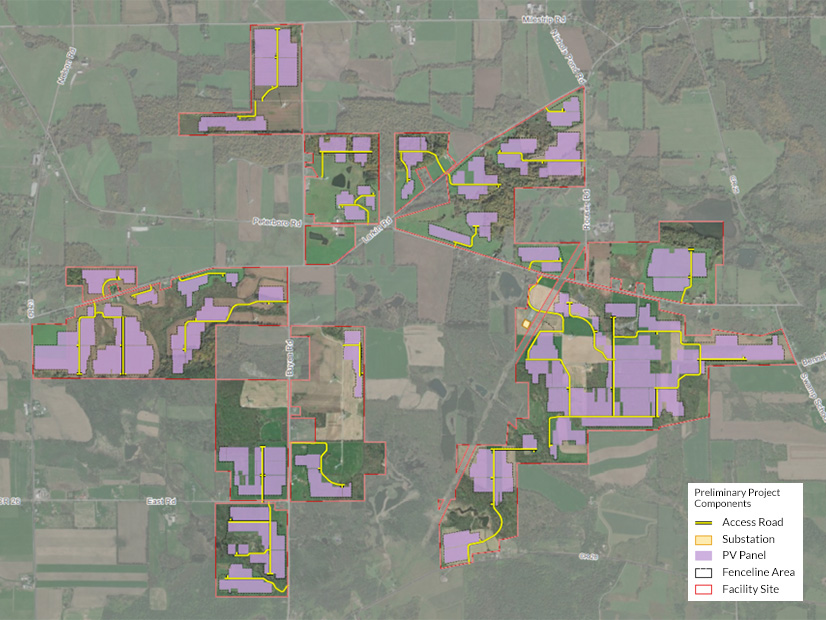NYISO last week raised a caution flag on a solar developer’s request for FERC to waive certain interconnection queue procedures, which the ISO said could have marketwide implications (ER23-2559).
Oxbow Hill Solar — a 140-MW utility-scale solar project to be built in Madison County, in rural Central New York, by Cypress Creek Renewables — completed NYISO’s interconnection studies for large facilities and joined Class Year 2021 after accepting its cost allocation. It was expected to be operational by the end of 2026, but because of “circumstances beyond its control,” the developer failed to meet a subsequent regulatory milestone to finalize its siting and interconnection agreements, so it requested an extension to Aug. 11, 2024.
In comments filed with the commission Thursday, NYISO did not take a position on the request, but, citing Order 2023 and FERC’s prior emphasis to adhere to deadlines, the ISO highlighted the importance of milestones in the interconnection process and expressed concern that granting the waiver without limits could negatively impact other projects in the queue.
Both FERC and NYISO have sought to unclog its interconnection queue, with Order 2023 setting penalties on projects that fail to progress through the queue and the ISO streamlining portions of its study processes. (See “FERC Order 2023,” NYISO Previews New York City PPTN.)
The ISO acknowledged that granting Oxbow’s one-time request might not pose an immediate threat but argued that prolonged delays could increase the potential for adverse impacts. It did support Oxbow’s request for FERC to act by Oct. 30, and it said if the commission approves the waiver, its requested deadline was acceptable.
Oxbow said it was on track to submit its siting and interconnection permits on time, but a directive from the New York State Energy Research and Development Authority, which tightened energy deliverability requirements for obtaining renewable energy credits, halted its progress.
A solution to NYSERDA’s concerns was identified, but Oxbow worried the delays would force it “all the way back to the first step of the NYISO’s extensive interconnection process,” where it would be placed into a new class year and be operational significantly later.
Oxbow said the waiver will not harm other market participants, is limited in scope to mitigate potential negative impacts and will remedy a “concrete issue” while helping New York achieve its climate and energy goals.



